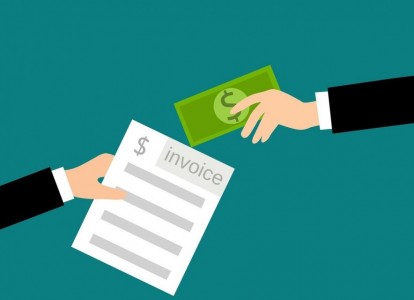What Are B2B Payment Solutions and Why Are They Important for Businesses?

B2B payments are business-to-business transactions. This type of commerce involves payments between various entities including manufacturers, retailers, and wholesalers.
The term “B2B” was first introduced in the 1990s. Prior to that, B2B activities were considered a type of industrial marketing. Now, the term “B2B” is gaining more traction thanks to the rise of the internet, global commerce, and other trends.
Here’s what you should know about B2B payment solutions if you are a business leader.
Why Is B2B Gaining Traction?
As commerce moves online, B2B payment solutions are becoming increasingly important. This year’s trends illustrate B2B’s recent growth.
According to a recent report from the U.S. Department of Commerce, e-commerce sales grew in value by 39% between Q1 of 2020 and Q1 of 2021. Proportionally, digital commerce now makes up 20% of all retail sales, up from 15% last year.
This growth is seemingly driven by responses to the COVID-19 pandemic. The trend has reduced in-person shopping, meaning that businesses must transact online more heavily—not just with retail customers but with corporate clients and partners as well.
Combined with the maturation of the Internet and a shift to online work, it seems likely that B2B activity will continue to gain more traction in the future.
Companies that choose to carry out their business online can take advantage of B2B services to make transactions, manage payroll, and conduct other financial activities.
Who Can Use B2B Payments?
There are several types of entities that can use B2B payment solutions. Online stores and merchants can use B2B solutions to accept credit card and debit card payments. Behind the scenes, companies can use B2B services to manage employee payrolls, to pay partners and affiliates, and to exchange different foreign currencies.
In terms of specific industries, B2B applications can be used in various settings including e-commerce, manufacturing, the supply chain sector, as well as parts of the service industry such as housekeeping and industrial maintenance.
Additionally, freelancers can use B2B services to invoice clients and receive payments. Importers and exporters can use B2B payments to move money across borders.
In short, any business is eligible to make use of B2B payment tools and services, whether it is a large corporation or a one-person enterprise.
How Does B2B Differ From Alternatives?
B2B transactions involve communications between members of businesses rather than consumers, meaning that sales are not necessarily straightforward.
Businesses typically negotiate large deals with select partners that have specific needs, and this approach takes longer than other types of commerce. By contrast, business-to-customer (B2C) transactions may involve a large volume of small transactions through just a few commonplace payment methods.
Additionally, B2B-related activity is often an international matter. Businesses may need to make cross-border transactions. Furthermore, businesses may have remote employees in various countries with different payment needs.
These differences mean that B2B services must offer a variety of features. Extensive support for foreign currencies and credit card services is important, as is support for a large variety of payment options used by multiple clients.
PaySet Offers a Global Solution
PaySet offers several payment services for businesses. Their core service is a multi-currency IBAN account with global transfer capabilities, transparent fees, and fast payments with no limits. They support 33 foreign currencies and a wide array of payment networks including SWIFT, SEPA, Target2, Faster Payments, CHAPS, and more.
They also offer a credit card gateway, featuring a custom branded payment page, high approval rates, fraud prevention, and recurring payment setup. They also support credit card alternatives such as PayPal, Apple Pay, WeChat Pay, Netteller, and Kiwi.
Finally, they offer a currency exchange with competitive real-time rates, pre-agreed margins for more reliable trades, and full reporting with FX data. Their exchange has no minimum or maximum limits on trading amounts.
Visit PaySet to see a full list of features and options.



